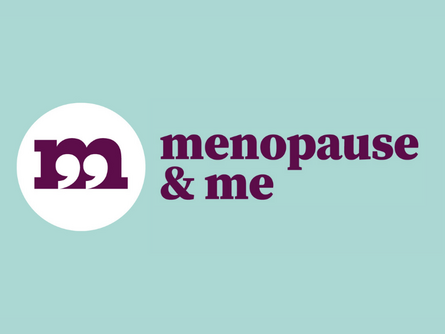Início > Health & Wellbeing > Health > Menopause Support
Menopause support
The menopause affects everyone. Browse our resources to help manage symptoms of the perimenopause and the menopause.
M-Powered Support Groups
Our M-Powered support groups offer the chance to speak with other people who might be experiencing the same things as you and give each other support, encouragement and understanding.
Support for those with lived experience
If you have lived experience and would like support, you can sign up to the free Menopause & Me community course delivered by Suffolk Mind. The course offers five online, interactive sessions, and is aimed at anyone experiencing the perimenopause or menopause.
Each session is designed to address and focus on different areas of information and support, to help people better understand their symptoms, and how to support themselves. This will be through teaching, learning activities and opportunities to share within the group.
Tips and resources on managing your menopause
Glossary of menopausal terms
Premenopause
Premenopause is when you have no symptoms of perimenopause or menopause. You
still have periods — whether they’re regular or irregular — and are considered to be in
your reproductive years. Some hormonal changes may be occurring, but there are no
noticeable changes in your body.
Perimenopause
Perimenopause is the period leading up to menopause, when most symptoms are
experienced. Oestrogen and progesterone levels are gradually declining, but periods
continue, although they may come irregularly. Periods may also change to a very
heavy period or an unusually light period, and this change lasts until the complete
cessation of periods. Pregnancy is still possible during perimenopause.
Menopause
Menopause is when you stop having periods (usually between 45 and 55 years old).
This happens when your ovaries stop producing oestrogen and no longer release eggs.
Menopause signifies the end of a woman’s reproductive years and is generally
considered complete after a woman hasn’t had a period for 12 consecutive months.
Once a woman reaches menopause, her ovaries have stopped releasing eggs and
produce a minimal amount of oestrogen.
Postmenopause
Postmenopause is the time after periods have stopped. Symptoms of menopause may
have eased or stopped entirely, but some women continue to have symptoms for
longer. There can be an increased risk of some health conditions, such as
cardiovascular (heart) disease, osteoporosis (weak bones) and urinary tract infections
(UTIs).
Natural Menopause
This is the biological stage in life that occurs when hormones change and
menstruation stops.
Surgical Menopause
Occurs after an operation to remove an individual’s ovaries, either on its own or at the
same time as a hysterectomy. As the ovaries are the body’s main source of oestrogen
production, this could immediately trigger menopause, regardless of age. A
hysterectomy, without the removal of ovaries, may lead to earlier menopause than if a
hysterectomy had not been carried out.
Induced Menopause (or Chemical Menopause)
An injection or nasal spray is used to suppress hormones to make periods stop.
Early or Premature Menopause
Also known as Premature Ovarian Insufficiency (POI). This is when menopause
symptoms start before 45 years of age. This impacts 1% of women under 40 and 0.1%
of women under 30.
Common menopause symptoms
There are over 30 common symptoms of the menopause and are known to help to recognise if you are (peri)menopausal. You may not experience any of these symptoms or may experience only a few – you do not need to experience all the symptoms to be in menopause or perimenopause. You may also experience some of these symptoms for reasons other than the menopause.
You should always speak to your doctor if you have any concerns.
Common menopause symptoms:
- Allergies
- Anxiety
- Bloating
- Breast pain
- Biting nails
- Burning tongue
- Changes in odour
- Depression
- Difficulty concentrating (brain fog)
- Digestive problems
- Dizziness
- Electric shocks
- Fatigue
- Gum problems
- Hair loss
- Headaches
- Hot flashes
- Incontinence
- Irregular heartbeat
- Irregular periods
- Irritability
- Itchy skin
- Joint pain
- Loss of libido
- Memory lapses
- Mood swings
- Muscle tension
- Night sweats
- Osteoporosis
- Panic disorders
- Sleep disorders
- Tingling in hands and feet
- Vaginal dryness
- Weight gain
Hormone Replacement Therapy (HRT)
What is HRT?
For people who seek help for their menopausal symptoms HRT is the most commonly
prescribed treatment. You should discuss the benefits, side effects and risks of taking
different HRT types with your GP, who knows your individual clinical picture.
There are two main hormones used in HRT:
- Oestrogen: Oestrogen is a sex hormone, the levels of which drop in (peri)menopause.
Types of replacement oestrogen prescribed by doctors include estradiol, estrone and
estriol. - Progestogen: Progestogen is a synthetic form of progesterone (one of the naturally occurring sex hormones) developed to replace the hormone when levels drop in (peri)menopause.
HRT is taking both of these hormones (combined HRT) or oestrogen-only HRT, though
this is only normally prescribed if you have had a hysterectomy (operation to remove
your womb).
Ways of taking HRT include:
- Tablets
- Skin patches
- Oestrogen gel
- Implants
- Intrauterine system (IUS)
- Vaginal oestrogen
- Testosterone gel
Starting on HRT and treatment routines
If you decide you would like to consider taking HRT you should discuss your options
with your GP. If you are given HRT your doses may need tweaking and changing by your
doctor. It can take three months before you will start noticing a difference in your
symptoms.
The routine will depend on whether you’re in the early stages of menopause or have had
menopausal symptoms for some time.
Managing brain fog
What is Brain Fog?
The Fawcett Society reported that 73% of women experience brain fog during the
(peri)menopause. Brain fog describes a range of experiences related to cognitive
(brain) function. This includes problems with decision making, concentration and
memory.
These can be as simple as forgetting what comes next in a sentence, where you
have put something or feeling as if your head is full of cotton wool. It can also be
quite scary as, for some, there is the concern that it is the first sign of
dementia. However, unlike dementia, brain fog can improve over time and with
support.
As with many other symptoms, brain fog in menopause can be due to changes in
hormone levels, particularly Oestrogen which is important for our brain health. It
can also be made worse by other menopause symptoms such as lack of sleep – the
so called “domino effect”. Brain fog can cause issues in the workplace impacting
on confidence and concentration levels, as well as at home.
Healthy Diet
Following a healthy diet and reducing alcohol and caffeine intake can help with a
range of menopause symptoms including brain fog.
Exercise
The most important thing when it comes to exercise is to do something which you
enjoy. However, it is counterproductive to exercise in the hour before sleep as this
will keep the brain alert.
Sleep
Sleep can often be disturbed in (peri)menopause but is crucial for good brain
function. Following good sleep hygiene can help to improve the quality of your
sleep. Minimising screen time before bed, having a regular bedtime, keeping your
room cool and dark can all aid you getting a restful and restorative night
Symptom Diary
Writing lists or keeping a diary can help. Some people like to have a notebook next
to the bed for those moments when you wake up in the night. Journaling is also a
good way to keep track of your symptoms and what helps
Take Your Time
There can be pressure to do things quickly and to multi-task. Taking your time and
focusing on one thing at a time can help.
As with any symptoms, please do consult a Healthcare Professional if you have
any serious concerns
Livros recomendados
Browse our selection of non-fiction books to help you understand the perimenopause and menopause, and manage your symptoms. All these books and more are free to borrow with your library card.
Helpful links
- Suffolk Mind
- Suffolk Work Well self-referral form
- British Menopause Society
- Menopause Matters
- Menopause Support UK
- The Menopause Charity
- Rock My Menopause
- Women’s Health Concern
- The Royal College of Obstetricians and Gynaecologists
- The Daisy Network
- NHS
- Queer Menopause
- Cycle of Change: Understanding Menopause (YouTube video)
- Menopause, Sleep and Mental Health (video)
- Perimenopause Hub
- Women’s Health Hope

